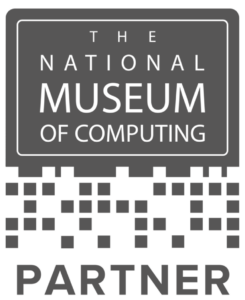ITSM is still seen by many as purely ITIL-focused or relevant only to internal IT operations. It is time for ITSM to stand up and be counted as a professional service discipline. Based on discussions with members across the country and the work of a thought leadership group, Barclay Rae outlines a future path for ITSM.
A Grown-up ITSM Industry
ITSM needs to grow up – we need to look at ourselves and professionalise our industry and approach.
This means re-positioning as a more strategic and business-relevant function, with demonstrable business benefits, supporting organisational and customer expectations. In the past this has been too narrowly focussed on internal IT functions, projects and costs.
ITIL has been the ‘de facto’ training and development approach for the last 10 – 15 years, yet those involved in delivering it know that ITIL is not enough – success requires much more than knowledge of a process framework.
IT and ITSM also needs to be viewed and appreciated more in a business broker role, more able to react quickly and be a solution provider rather than a ‘blocker’ – or the guys who always say ‘no’.
Without a significant change in speed of delivery, quality and perception of service and demonstrable value, many IT internal departments and external IT companies will become more and more exposed as obsolete, and ultimately, redundant.
The ITSM industry itself also needs a make-over, with fresh and accessible content, some new and contemporary framing and messaging, in order to remain attractive and relevant.
In order to succeed with this we need first to take steps to improve the image of the industry, and the extent to which it can be shown to be professional, business-like and valued at the C-level.
ITSM as a Discipline?
One problem is that ITSM is not seen as a discipline. There are several models for organisational certification (ISO20000, based on ITIL, SDI/HDI for Service Desks, COBIT as a governance model). Yet there is no central point of convergence or clarity about how these relate or are jointly relevant to support businesses. There is a growing but relatively low take-up of most of these models, which is disappointing since this would provide evidence that the ITSM programmes are working.
There are several industry organisations in this space that have members and forums, produce content, run events and in some cases set standards – yet these tend to exist as standalone niche bodies. Memberships have declined from initial high levels as the market has become saturated and knowledge and content has become more freely available online.
There is a large gap in the body of knowledge around ITSM – ITIL is primarily focussed on process, whereas successful ITSM requires a much wider portfolio of skills and capabilities. ITIL does not define organisational change, human interaction or customer experience, all essential for success.
Many organisations have expected ITIL to deliver results way beyond its capability or remit, seeing ITIL itself as the solution and ignoring these other factors. The result has been a lot of failed or incomplete ‘ITIL projects’ – these have burned cash and resources with little positive results – leaving the brand names of ITIL and ITSM damaged.
Without a central body to manage these issues, each area of the industry has continued unilaterally to deliver point solutions with limited success and restricted commercial penetration.
ITSM is therefore not a properly codified discipline. In its current form it will not be sustainable and the industry needs a new and wider definition, vision and structure. This must include e.g. a broader definition and portfolio of skills and capabilities, body of knowledge, organisational standards, plus clear career development paths, higher education qualifications and a code of conduct.
ITSM needs to be clearly positioned and presented as a business approach both within and beyond IT organisations. This is a growth area as many organisations are now using ITSM processes and tools to deliver wider collaboration and work management functions. C-level value propositions must be universally promoted around ITSM as an enabler, broker, orchestrator, rather than administrator.
All stakeholders need to engage and play their part in the delivery of Service Management – it’s a team game. We need to move away from thinking that ITSM is ‘just what the Service Desk do.’
In other words, in order to survive, the IT and ITSM industry has to move to the next level of maturity – we collectively need to grow up.
What Needs to Happen?
What do we need to do as an industry to improve and broaden our skills and reflect that in training and development?
- The view of (IT)SM from an executive perspective must be that it is a unifying and enabling discipline that brings together a number of functions, people and processes – we need to work harder to get that clear message across in suitable language.
- From a messaging perspective ITSM has to be seen as the enabler of great customer experience as well as delivery of business outcomes/results.
- We also need to get the message to the (IT) SM industry that we can’t do this simply by ‘doing’ ITIL – we need to get the people part right, plus the right use of governance and other tools, automation and frameworks to be successful.
- The industry needs leadership to draw these ideas together and to normalise the needs for integration – ITIL is only part of the solution and more skills need to be developed and promoted.
Click here to find out more about our plans to develop and advance ITSM as a professional discipline and tune in next week to find out what Barclay thinks are the key areas for development and what skills are needed beyond ITIL.
This article was first published in the Summer 2015 issue of Service Talk which is a benefit of ITSMF UK membership.

Barclay Rae
Barclay Rae has extensive experience as a consultant, analyst and subject matter expert in IT Service Management. He is the Lead Editor of ITIL 4 Create Deliver Support (CDS) Managing Professional guide, a member of the ITIL 4 Architect team and a co-author of ITIL Practitioner.
He also has considerable business and management experience in the industry, both as a consultancy vendor and also working with industry bodies and vendors such as SDI, AXELOS, APMG, and Axios. He brings industry and subject knowledge to ITSMF UK's strategic direction, as well as practical experience and commercial skills in running a small business organisation.


